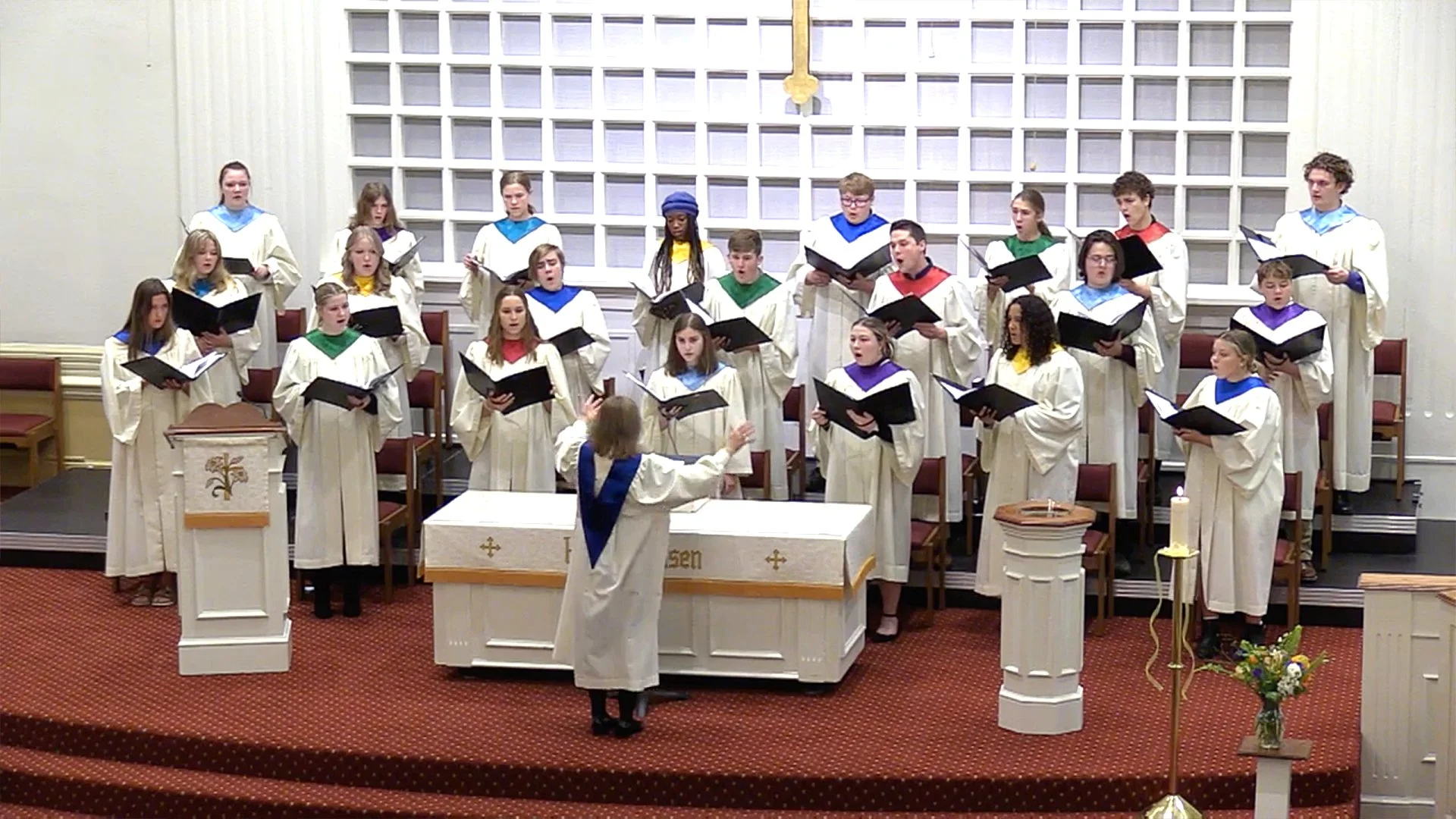Hymn of the Week: April 19, 2024
I Love to Tell the Story
Glory to God: 462
I love to tell the story
Of unseen things above,
Of Jesus and His glory,
Of Jesus and His love:
I love to tell the story,
Because I know 'tis true;
It satisfies my longing,
As nothing else can do.
Refrain:
I love to tell the story;
’Twill be my theme in glory
To tell the old, old story
Of Jesus and his love
I love to tell the story;
'Tis pleasant to repeat
What seems each time I tell it,
More wonderfully sweet:
I love to tell the story,
For some have never heard
The message of salvation
From God's own holy Word.
Refrain:
I love to tell the story;
’Twill be my theme in glory
To tell the old, old story
Of Jesus and his love
I love to tell the story;
For those who know it best
Seem hungering and thirsting
To hear it, like the rest:
And when, in scenes of glory,
I sing the new, new song,
'Twill be the old, old story
That I have loved so long.
Refrain:
I love to tell the story;
’Twill be my theme in glory
To tell the old, old story
Of Jesus and his love
Arabella Katherine Hankey (1834-1911)
grew up in the family of a wealthy English banker associated with the evangelical wing of the Anglican Church. As a teenager she taught a girls' Sunday school class. Later she traveled to South Africa to serve as a nurse and to assist her invalid brother.
While recovering from a lengthy illness of her own at age 30, she wrote a poem on the life of Christ. This poem had two sections, the first published in January 1866 and entitled The Story Wanted, the second published later that year in November under the title The Story Told. Our hymn is drawn from stanzas in the second section. The text of the refrain was written by the composer of the music, William G. Fisher, in 1869. (A musician herself, Hankey wrote her own tunes for the text, but others found little use for them.)
In 1867 Englishman Major General Russell cited the text of "I Love to Tell the Story" at a large international YMCA gathering in Montreal. William Doane, a composer of more than 2000 gospel songs including music for many of Fanny Crosby's hymns, was in the audience. His musical setting did not stick, but another setting composed by William G. Fisher, a Philadelphia musician and piano dealer (1832-1912), did. When Phillip Bliss and Ira Sankey included Fisher's version in their influential Gospel Hymns and Sacred Songs (1875), its fame was assured.
The personal, intimate language comes through in such phrases, for example, as "it [the story] satisfies my longings as nothing else can do" (stanza one) and "it did so much for me, and that is just the reason I tell it now to thee" (stanza two). Hankey is passionate about this story and how it has changed her life. In the refrain, the word "love" takes on a double meaning -- both about the state of the singer and the message of Jesus: "I love to tell the story . . . of Jesus and his love."
Hymnologist Kenneth Osbeck notes that Hankey wrote many books such as Bible Class Teachings and several collections of verse, and adds: "All of the royalties received from these publications were always directed to some foreign mission project."
Dr. Hawn is the director of the sacred music program at Perkins School of Theology.







